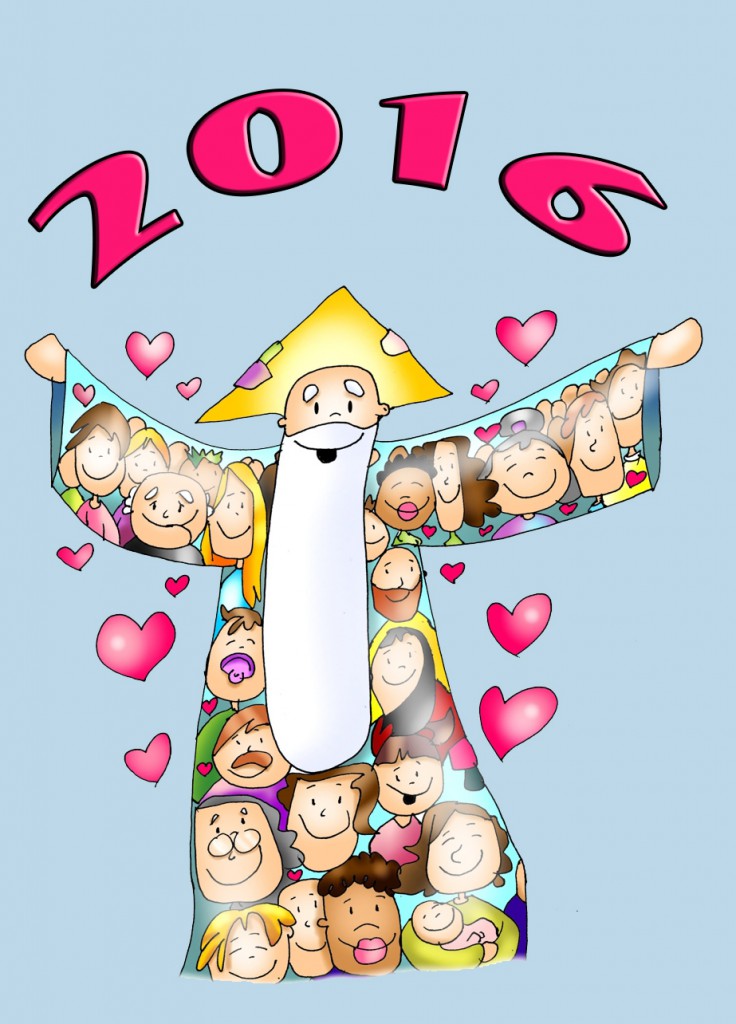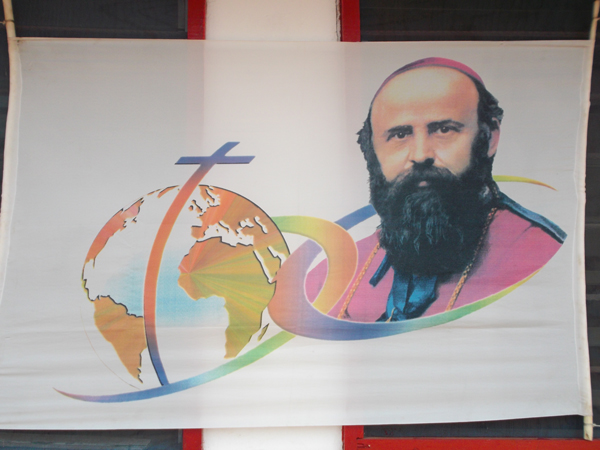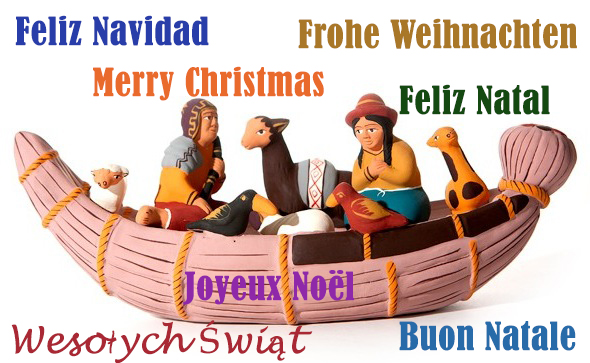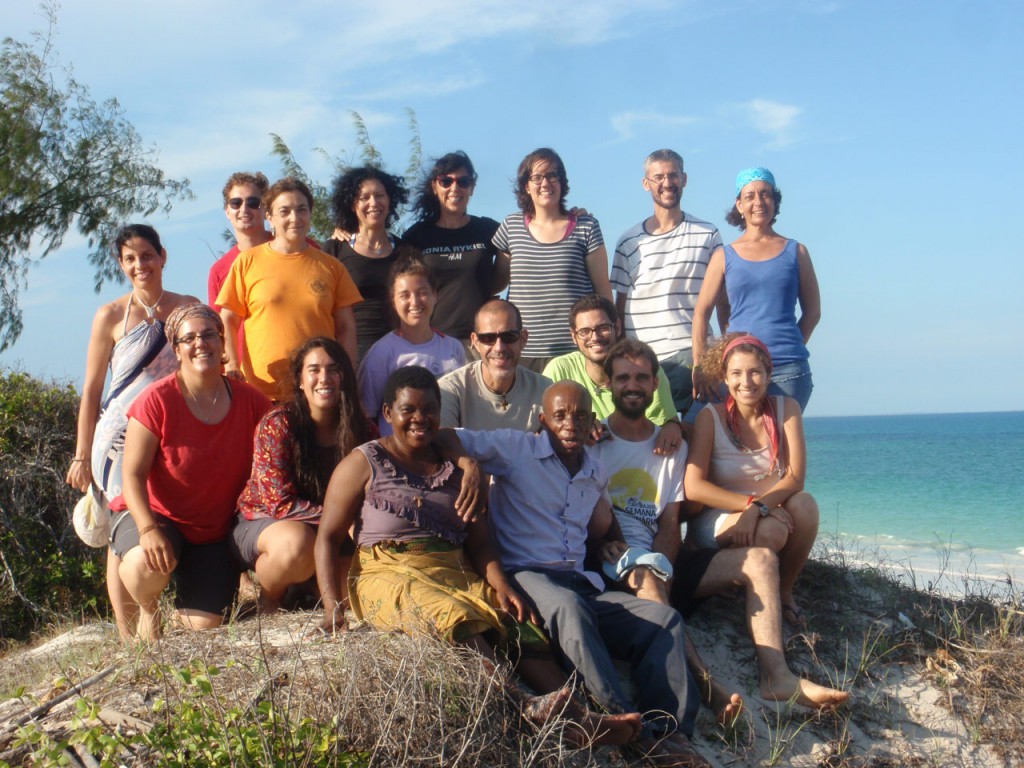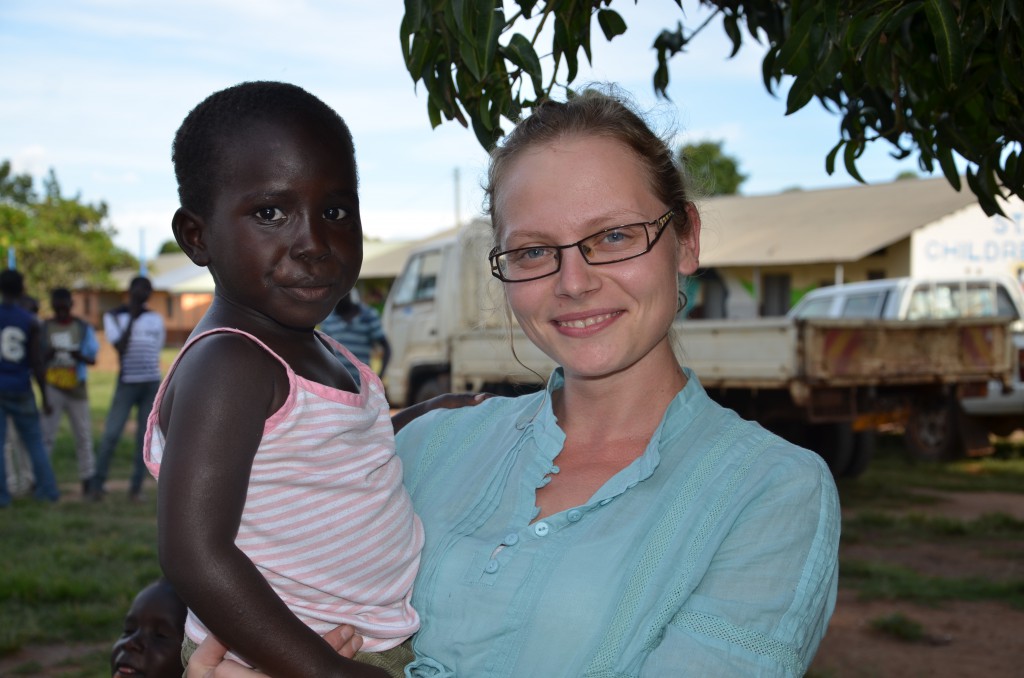
My first mission in St. Jude Orphanage in Gulu is coming to an end. My contract is over in March. During these almost 2 years I worked among Acholi people. My first duty is working in administration. But I try sometimes to do something with children in the afternoon when I don’t need to be in the office. I’d like to tell you about an amazing girl who I work with, who has thought me a lot and who shows me every day what is the most important in the life.
Jacqueline is a 16-year-old autistic girl, who appeared in our St. Jude few years ago. She previously lived with her grandmother, but because she did not have time for her, Jackline spent days with goats, which were around. When she came to our center she could not even walk, so this skill she has been taught here. In addition, due to her “company” Jackline instead of talking rather she produced (and sometimes she still does it) something like goat’s scream. After more than a half-yearly treatment the frequency of issuance this horrible sound has been reduced, but it still appears, especially when she is dissatisfied, hungry or something makes her upset.
My work with Jackline is a beautiful and extraordinary adventure. I have already learnt very much from her. It is amazing how every day I can discover something new in her, a new character trait, things that she likes and she doesn’t like, favorite color, food. The beginning of my work with Jackline was quite hard, because she does not speak. In addition autism is linked with some degree of disability (mental retardation). So, at the beginning I had to learn everything, her response, why she behaves in this way, what means the sound that she does notoriously, what means that expression. But slowly, slowly, I have discovered many things and I have noticed a lot. As I mentioned above I’m still learning and it is the biggest beauty of this work. But it wasn’t the most important at the beginning. The most important thing was to gain the trust. For children with autism it is hard to trust someone new. Jackline initially did not want to even grab my hand, she was afraid when I pulled her hand and wanted to take a walk, even she did not want to smile. It was a difficult time because I did not know how I should react, how to work and what path peel to somehow cope with this problem. I knew one: love for a child is the most important, if you give sincere love to someone, then the child will feel that you care about her and finally the child will trust. And this is indeed the best solution. Of course classes, stimulation is one thing, but love should be always above everything. And the greatest expression of her trust was one of her gesture when she was sick. One day I was looking for her in order to take her to classes and accidentally peeked into our small “clinic”. It was there that I found Jackline-weak and sad. She was sick. First thing which we do is malaria test. So we had to do it. And in her case, the nurse knew it would be the worst, because she doesn’t allow anybody to touch her. But when I entered the room and our sight met I saw in her eyes peace. Although she says nothing by sight and behavior she can express everything in a very beautiful way. The visit came to an end successfully. But when I was going with her to go out, Jackline suddenly put her head on my knees and decided to just lie down. Yes, we spent the whole afternoon like that -she quietly was lying on my lap and me with great joy and emotion of heart watching her. This was for me the most wonderful experience and the best proof of her trust and confidence. Of course I still continue my work with Jackline, because there is still a lot to do, but slowly, slowly, I hope that even more will develop.
Joanna Owanek, CLM




